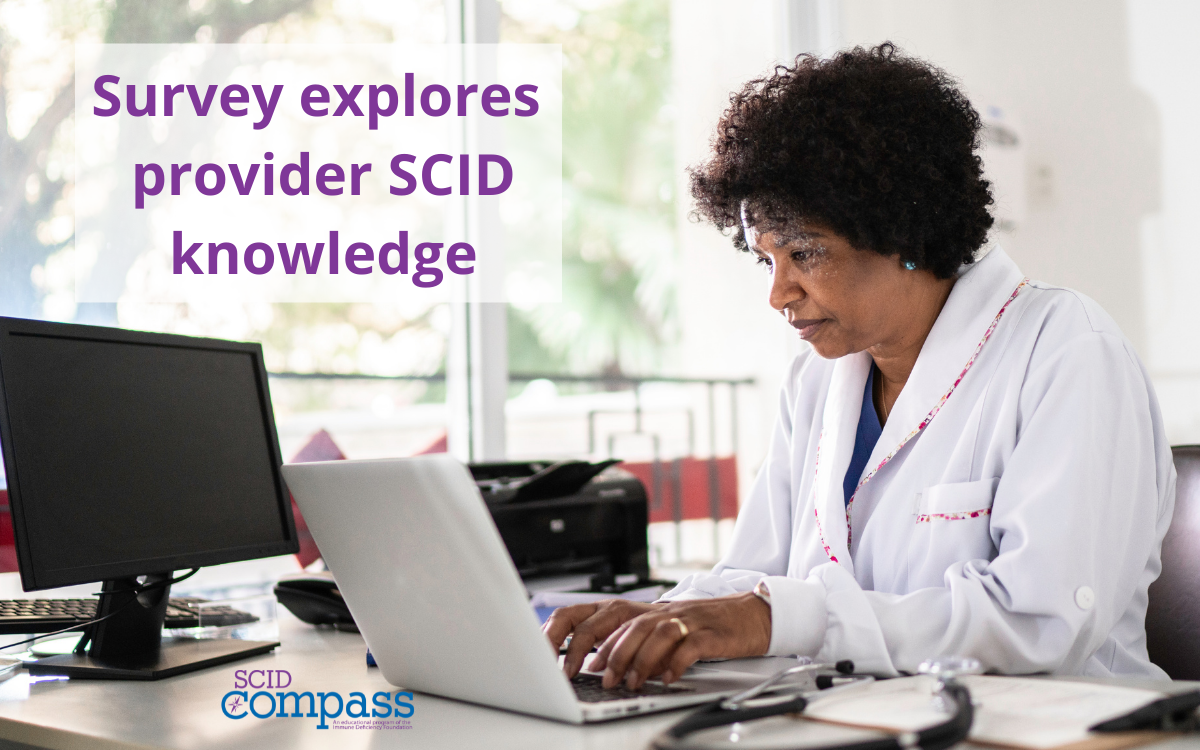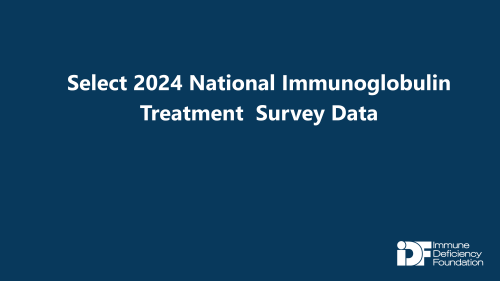
-
Understanding primary immunodeficiency (PI)

Understanding PI
The more you understand about primary immunodeficiency (PI), the better you can live with the disease or support others in your life with PI. Learn more about PI, including the various diagnoses and treatment options.
-
Living with PI
-
Addressing mental health
-
Explaining your diagnosis
- General care
- Get support
- For parents and guardians
-
Managing workplace issues
- Navigating insurance
-
Traveling safely

Living with PI
Living with primary immunodeficiency (PI) can be challenging, but you’re not alone—many people with PI lead full and active lives. With the right support and resources, you can, too.
-
Addressing mental health
-
Get involved

Get involved
Be a hero for those with PI. Change lives by promoting primary immunodeficiency (PI) awareness and taking action in your community through advocacy, donating, volunteering, or fundraising.
-
Advancing research and clinical care
-
Research Grant Program
-
Consulting immunologist
-
Diagnosing PI
-
Getting prior authorization
-
Clinician education
-
Survey research
-
Participating in clinical trials

Advancing research and clinical care
Whether you’re a clinician, researcher, or an individual with primary immunodeficiency (PI), IDF has resources to help you advance the field. Get details on surveys, grants, and clinical trials.
-
Research Grant Program
Though every newborn in the United States is screened for severe combined immunodeficiency (SCID), healthcare providers, even those who have experience treating SCID, exhibit gaps in knowledge about how to manage this rare, life-threatening primary immunodeficiency (PI), according to an article in Frontiers in Pediatrics.

Published in February 2022, the article, entitled “Severe Combined Immunodeficiency: Knowledge and Information Needs Among Healthcare Providers," explains the results of a survey conducted by the Immune Deficiency Foundation’s SCID Compass program and its partners, including SCID Angels for Life and RTI International. The survey evaluates U.S. healthcare providers’ knowledge about the management of patients with SCID and is the first of its kind ever conducted.
The SCID Compass survey, completed online by 244 healthcare providers, asked questions about providers’ experience with SCID patients, knowledge about SCID, and the type of SCID-related educational resources they would prefer.
The survey found that those providers who had treated only one or no patients with SCID — a cohort comprised primarily of pediatricians along with family medicine providers, nurse practitioners, genetic counselors, and physician assistants — had a variety of informational needs, including:
Understanding the different types of SCID
Understanding SCID treatment options
Making appropriate specialist referrals
Knowing how SCID impacts the child's future
“Pediatricians are often parents' first point of contact for SCID newborn screening results. It is important for pediatricians to have a strong knowledge of SCID to deliver clear communication to parents,” according to the article.
Those providers who had treated two or more patients with SCID — a group comprised mostly of allergists/immunologists — had fewer needs but still expressed that they wanted more information about managing SCID, specifically when referring parents to support services and overseeing patients post-treatment.
Both groups of providers said they would prefer to familiarize themselves with SCID-related topics by reading peer-reviewed scientific publications and by visiting websites.
“Given that providers in our study expressed concerns about locating SCID informational resources, there may be a need to increase education among medical providers on available informational resources for rare genetic diseases, including SCID,” according to the article.
“Availability of resources that are easily accessible, trustworthy, and user-friendly is vital to improving and maintaining providers' knowledge of SCID and increasing their comfort in treating patients with SCID.”
Babies with SCID are born with little to no functioning immune system, making them vulnerable to infections. SCID is fatal if it is not treated within the first few months of life. Accepted treatment is bone marrow transplant; families may also choose to treat the baby with gene therapy which is still in clinical trials.
Newborn screening for SCID was instituted in all 50 states in 2018, greatly increasing the chances of survival of babies with SCID. However, as the survey and subsequent article demonstrate, providers continue to require resources related to care for babies with SCID, which is considered a pediatric emergency.
Sign up for updates from IDF
Receive news and helpful resources to your cell phone or inbox. You can change or cancel your subscription at any time.





The Immune Deficiency Foundation improves the diagnosis, treatment, and quality of life for every person affected by primary immunodeficiency.
We foster a community that is connected, engaged, and empowered through advocacy, education, and research.
Combined Charity Campaign | CFC# 66309




